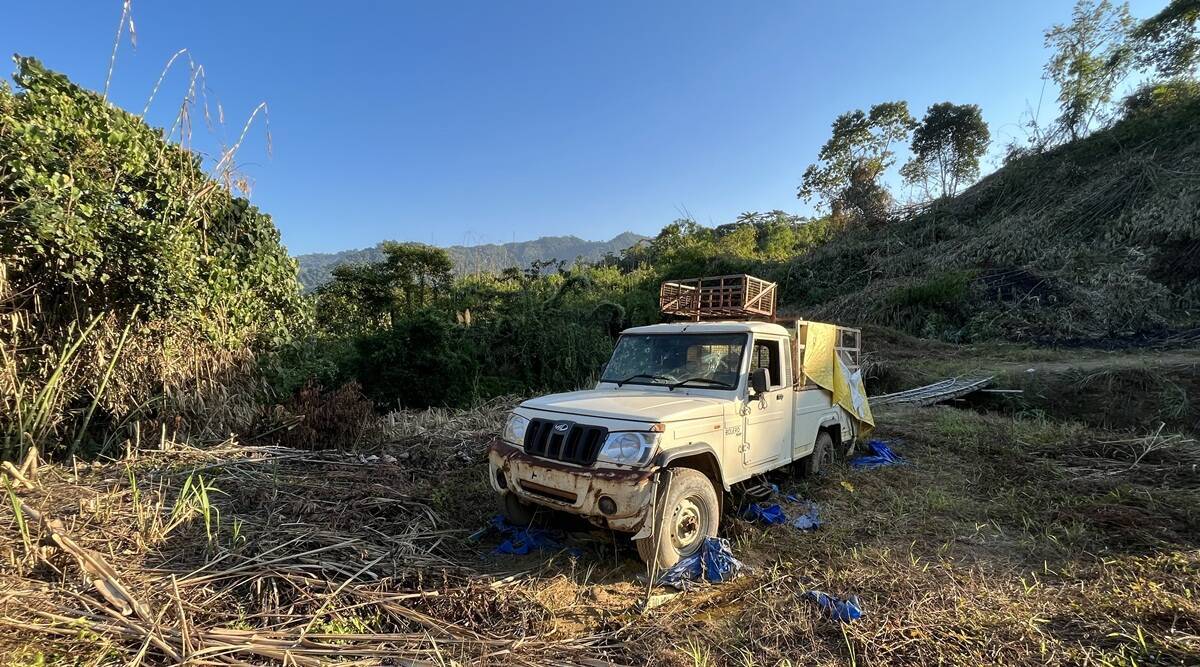Live Classes

In denying sanction to the Nagaland police to prosecute 30 Army men for the December 2021 killing of 13 civilians in a botched up operation, the Union government has sent out a disconcerting message that it is unable or unwilling to do anything about impunity in insurgency hit States.
What is the issue?
In what was later described as a case of mistaken identity, six workers returning home in a vehicle from a coal mine bordering Assam were gunned down by the security forces at Oting village in Mon district. Seven more villagers were shot dead later, following a scuffle with villagers who had found the bodies in an Army vehicle. Prior sanction to prosecute Army personnel is necessary under Section 6 of the Armed Forces (Special Powers) Act (AFSPA).
Nagaland police demand
A Special Investigation Team of the Nagaland Police completed its probe in March 2022, and filed a charge sheet in the case. It had sought sanction for prosecution from the Defence Ministry’s Department of Military Affairs. The police had claimed they had established the involvement of 30 personnel, who allegedly violated standard operating procedures and rules of engagement, and resorted to indiscriminate and disproportionate firing on the vehicle. Meanwhile, the Army also ordered a court of inquiry, but its outcome is not known. On petitions by the wives of the Army personnel involved, the Supreme Court of India stayed the criminal proceedings in July 2022.
Reduction of notified areas and peace efforts
The Centre has been quite keen on reducing the areas covered by the law giving special powers in disturbed areas to the armed forces. In recognition of the significant improvement in the security situation in the northeastern region, it has reduced the notified areas in Nagaland, Assam and Manipur in recent years.
On the political side, it has been working towards peace accords and getting insurgents and extremists to lay down arms. However, it is quite incongruent with its overall policy of creating an atmosphere conducive for peace and development, and making partners out of those laying down weapons, for the government to disallow the prosecution of those suspected to be involved in an admittedly mistaken counter insurgency operation.
Conclusion
It would have redounded to the government’s credit had it allowed the criminal courts to decide on the extent of culpability of the Army men. Prosecution of armed forces personnel involved in excesses is quite rare, leading to the widespread impression that AFSPA is used to promote impunity. The government must demonstrate its commitment to peace in the region and justice for the victims by either granting sanction for their prosecution, or taking exemplary action based on the findings of the military court of inquiry.
Armed Forces (Special Powers) Act (AFSPA)
Disturbed area
Disturbed Areas Act (DAA)
The Assam Disturbed Areas Act was introduced in 1955 for Nagaland to suppress the Naga insurgency. This act is called mini AFSPA as it gives the armed forces the same powers as AFSPA. The State Government has the power to declare the whole or any part of the district as a disturbed area by notification in the Official Gazette. The only difference is that DAA is granted as a state power, but AFSPA can be invoked by the state governor or the central government.
Salient Features of AFSPA Act
Supreme court directive
In 1998, in Naga People's Movement of Human Rights v. Union of India, the status of AFSPA was specifically challenged by the Supreme Court and a five-judge bench concluded that the Act was not violative of the Constitution and the powers conferred under it. May go . Sections 4 and 5 of the Act are not arbitrary and redundant and hence the ban of the Constitution is not violative. In addition, Section 4 requires Army SEALs to strictly observe minimum force when suspected of violating said injunction. Arrests under section 4 and any person detained are to be handed over to the Wireless Police Station within 24 hours of such arrest. Some similar orders were given by the Supreme Court in 2016 to 2017 as well.
Download pdf to Read More